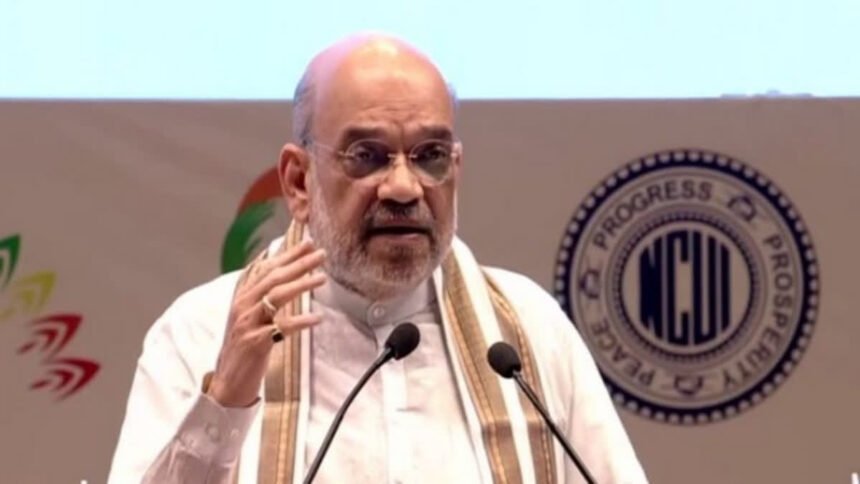Cooperation Minister Amit Shah emphasized the importance of farmer producer organisations (FPOs) in enhancing the contribution of agriculture and allied sectors to the country’s GDP. Speaking at a conclave, the Minister stated that the adoption of modern technology and marketing methods can make agriculture a profitable venture. He further proposed a “hybrid model” where FPOs and Primary Agricultural Credit Societies (PACS) collaborate to provide services to cooperative members, thereby strengthening agricultural marketing.
The Minister’s address shed light on the potential for growth in the agriculture sector and the key role FPOs can play in achieving this. By facilitating improved marketing practices, FPOs have the ability to enhance the overall profitability of agriculture. Minister Shah highlighted the need for modernizing the sector by embracing advanced technologies and efficient marketing strategies.
In order to maximize the impact of FPOs, the Minister proposed a hybrid model that integrates the existing PACS with FPOs. Currently, there are approximately 11,770 FPOs established across the country. These FPOs can enter into agreements with PACS, enabling them to offer their services to cooperative members. Additionally, the Minister suggested that the existing 65,000 PACS should also be allowed to operate as FPOs, further expanding the reach and effectiveness of these organizations.
The hybrid model presented by Minister Shah aims to create a collaborative ecosystem where FPOs and PACS work together to provide comprehensive support to farmers. By leveraging the strengths of both entities, farmers can benefit from improved access to markets, better financial services, and enhanced agricultural practices. This synergy between FPOs and PACS has the potential to transform the agricultural landscape and make it a more lucrative sector for farmers.
FPOs act as collectives of farmers, enabling them to aggregate their produce, achieve economies of scale, and have a stronger bargaining power in the market. These organizations provide a platform for farmers to collectively market their produce, negotiate better prices, and gain access to markets that would otherwise be difficult to reach individually. By integrating PACS into this framework, FPOs can leverage their existing infrastructure and resources to provide a wide range of services to farmers.
The Minister’s call to empower PACS to operate as FPOs opens up new possibilities for the agricultural sector. With their widespread presence and established networks, PACS can act as valuable intermediaries between FPOs and farmers. This integration would enable PACS to offer services such as credit facilities, storage and warehousing, logistics support, and market linkages to farmers through FPOs. It would also allow FPOs to tap into the extensive membership base of PACS and expand their reach across the country.
The hybrid model proposed by Minister Shah aligns with the government’s vision to transform Indian agriculture into a vibrant and profitable sector. It recognizes the potential of FPOs in driving growth and emphasizes the need to strengthen marketing efforts in order to maximize the value of agricultural produce. By combining the strengths of FPOs and PACS, this model has the potential to unlock new opportunities for farmers and promote sustainable agricultural practices.
Cooperation Minister Amit Shah’s address emphasized the significance of FPOs in enhancing agricultural marketing and boosting the contribution of agriculture and allied sectors to the country’s GDP. By adopting modern technology, efficient marketing methods, and a collaborative hybrid model that integrates PACS and FPOs, the agricultural sector can become a more profitable venture for farmers. This approach holds the promise of transforming the agricultural landscape and improving the livelihoods of farmers across the country.




